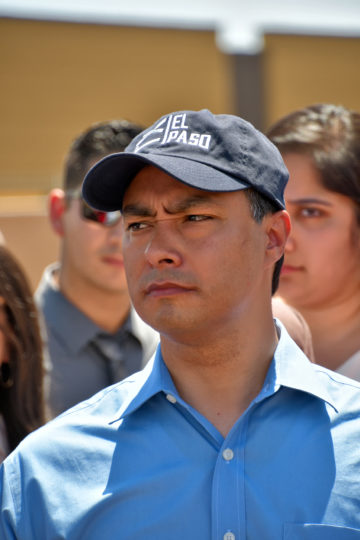In the fall of 2021, a national reporter from Politico was in Austin writing another profile of Beto O’Rourke as the El Paso Democrat geared up to follow a failed presidential campaign with a run for governor. The reporter asked Mayor Steve Adler whether it was a sustainable political strategy for Texas Democrats for O’Rourke to keep running for statewide office again and again—in 2022 and beyond.
“Why not?” Adler said. “Just for a while.” At the time, the logic was clear. No one else had the name recognition, the fundraising abilities, the talent, or the political will to run against the state’s incumbent Republican Governor Greg Abbott. If not Beto, then who?
But after a dismal defeat by 11 points in November, O’Rourke probably does not hold the key to breaking the Democrats’ longest statewide electoral drought in the country.

While O’Rourke helped reinvigorate the liberal cause in Texas and is sure to play a significant role in party politics going forward, it’s time to move on from the “Beto or Bust” mentality.
But who else is there? The GOP’s long domination of the state means that the Democrats’ bench is rather bare. Many of their most prominent and experienced leaders in the state Legislature or in Congress represent safe blue districts and have come to enjoy the creature comforts of incumbency and seniority—even if it’s in the marginal minority. Only in the past few years has a new generation of Democrats begun to make their mark, largely in local government, but this cohort of younger rising party stars are still largely untested and unknown.
So who will carry the torch forward? What’s the future of Democratic politics in the 2020s, not just statewide, but at the local level, in the Legislature, and in Congress? The next big statewide political contest will be in 2024, against Senator Ted Cruz, should he run for another term.
For years, San Antonio’s Castro brothers have been flirting with runs for statewide office in Texas without pulling the trigger. This would be the perfect time for San Antonio Congressman Joaquin, who’s thus far been second chair to brother Julián’s political career, to finally make the leap.
Colin Allred, the former Baylor football star-turned-Dallas Congressman, is another possibility. While he’s kept his head down during his two terms in Congress, Allred has more recently been working to build up his statewide profile in Texas. Congresswomen Lizzie Fletcher of Houston and Veronica Escobar, who succeeded O’Rourke in El Paso, could also be contenders.
The traditional incubator for political talent is at the local level, and right now that’s especially true in Harris County. There, Lina Hidalgo overcame Texas Republicans’ all-out attempt to oust her from the county judge’s office as she narrowly defeated Republican Alex Mealer in November. Already an up-and-comer, Hidalgo has proven able to hold her own against foes from within her own party in Houston, like District Attorney Kim Ogg, as well as top Republicans like Abbott and Lieutenant Governor Dan Patrick in Austin.
That easily puts Hidalgo on the Dems’ shortlist of possible statewide candidates. Other young progressives like Harris County Attorney Christian Menefee is also carving out a name for himself, using his post to go after corporate polluters and do battle with state Republicans.
Still, the political promise of Texas’ big cities—ostensibly the laboratories of progressive power—remains in question. In Houston proper, Mayor Sylvester Turner was first elected back in 2015 with the support of a progressive coalition. However, many of his promises have failed to come to fruition, and his office will be up for grabs in 2023.
Up in Dallas, Eric Johnson’s tenure as mayor has been a disappointment to many progressives. He’s been divisive within city hall and has a penchant for playing footsie with Abbott. But so far, he has no clear challenger for a second term. Fort Worth remains under the thumb of the local GOP establishment. The next mayor of Austin will be either former state Senator Kirk Watson, who was mayor once before back at the turn of the century, or state Representative Celia Israel. Neither are what you’d call political visionaries.

Moderate Dem John Whitmire, who has represented Houston in the Texas Senate for 40 years, announced his bid in December with backing from local casino mogul Tilman Fertitta and other Republican mega-donors from the Bayou City’s ruling class—most of whom backed Hidalgo’s opponent. The 73-year-old Whitmire is a political institution and the automatic frontrunner for the mayoralty, but he won’t be uncontested. So far, there are at least two other challengers who are part of the city’s younger generation: former City Council member Amanda Edwards and former County Clerk Chris Hollins.
Elsewhere in the big cities, San Antonio Mayor Ron Nirenberg was easily reelected to another term in 2021, as was longtime Dallas County Judge Clay Jenkins this year. Jenkins frequently made headlines for battling with Abbott during the height of the pandemic, while Nirenberg has been a more low-key operator. Both have been eyed as potential candidates for higher office.
But, with a firmly Republican-dominated Legislature that’s made a mission of restricting progressive power at the local level, ambitious Democrats in Texas are increasingly opting for the national stage.
Just a couple years ago, Austin City Council member Greg Casar once considered running for a seat in Dan Patrick’s Texas Senate; instead, he’s now headed for the U.S. House in Washington. In a punishing single term in the state House, Dallas Representative Jasmine Crockett made noise as a rabble rouser. She also promptly opted to run for Congress, successfully winning the seat of the legendary Congresswoman Eddie Bernice Johnson. As part of the state’s freshman class in Congress, Casar and Crockett will have to cut their teeth under a new Republican majority, but they could be important figures in the House’s growing Progressive Caucus—and part of Democrats’ long-term future back in Texas.
Of course, it’s quite possible someone else—currently off the state’s political radar—becomes the next beacon of hope for Texas Dems. Part of O’Rourke’s fleeting success was that no one saw him coming. He emerged into political celebrity from obscurity, famously jumping into the 2018 U.S. Senate race with little support from traditional party apparatchiks while snubbing his nose at conventional campaign wisdom.
O’Rourke rewrote the playbook for how to run, if not win, in Texas. Now, some other fresh face needs to figure out how to get over the top.







